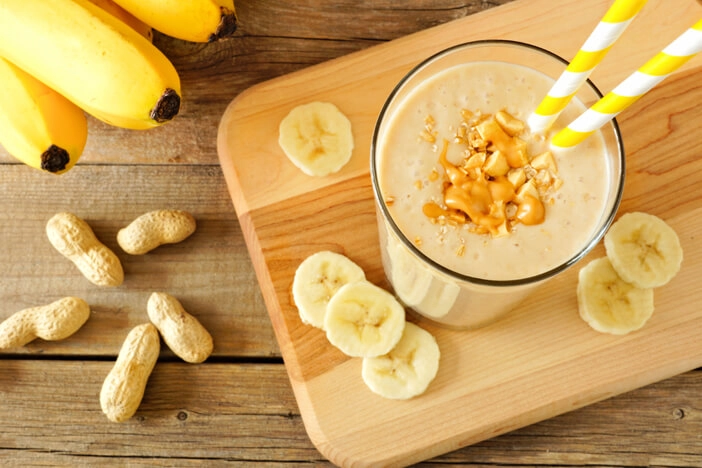The Banana - The Miracle Food for Sports Nutrition

Intro
What makes the banana a superfruit? Imagine a gym bag. Trainers, trousers, towel, water and (at least) one banana. But why has it become tradition for great tennis players to eat a banana during their games, rather than any other fruit? And is the banana also good for the sports nutrition of an average person?
Bananas are Big Berries!
Yes, you read that right. Biologically, bananas are berries. And very tasty ones at that. Bananas are very versatile: we eat them raw, cooked, grilled, mashed, warm, cold, barely ripe and green, ripe and yellow, as well as over ripe in a rather unflattering shade of brown. They can be wonderfully processed into drinks, such as juices, smoothies or milkshakes. Whether in the morning, afternoon or evening, as sport nutrition, baby food or just as a snack, bananas are eaten throughout society. You can take a look here at our delicious banana recipes. Those who want to lose weight or who want to adjust their sport nutrition should avoid dried bananas. By removing the water, the sugar content in dried bananas increases rapidly along with the calories (100g dried banana has up to 300 kcal).
What does 100 g of banana contain?
- Fibre 2.6g
- Carbohydrates 23g
- Protein 1g
- Fat 0g
- Calories 91 kcal
Important Minerals
- Potassium 358 mg
- Magnesium 27 mg
The Fruit of Sport Nutrition
Nowadays there are various sports nutrition powders advertised everywhere. Protein shakes and protein bars as well as food supplements are often recommended. But as an athlete, why should I use chemical powders in my nutrition when I could stick to delicious and natural goods?
Potassium and magnesium play an important role in muscle and nerve development and are also important for energy production and electrolyte balance. A deficiency of these two minerals can cause heart cells to change, resulting in increased cardiac arrhythmia. The best case scenario would be a harmless extra heartbeat (extrasystole). In the worst case scenario, this could lead to a heart attack.
Increased training and sweating causes the body to consume more magnesium and potassium. The banana should therefore be an important part of sport nutrition, for both professionals and amateurs.
Are bananas a superfruit?
Nowadays, wherever possible, everything is labelled as a superfood. Unfortunately, in only very few cases is this actually true. Paradoxically, bananas seem to be a superfruit in at least one respect. Humans digest ripe (yellow) bananas particularly well. On the one hand, their high pectin content helps bind fluids in the intenstine. On the other hand, pectin also stimulates digestion and therefore helps with all kinds of digestive problems. It should be noted here that both unripe and over ripe bananas should be avoided. Thanks to their high water and fructose content, bananas are also energy bombs.
Reach for the bananas!
Can I eat bananas if I want to lose weight? Absolutely! Often disreputed as calorie bombs, bananas are actually expressly recommended by modern nutrition experts. They are too healthy to do without. They contain many vitamins, minerals and fibres that the body needs. For example, magnesium regulates the body’s energy intake and a deficiency of it can lead to problems with the metabolism. Whether in diet plans, sports nutrition, advice on healthy eating or just as a simple snack, bananas should never be left out.
So next time, instead of reaching for a diet bar, just grab a natural “superfood”, a good old crooked banana. You can also find bananas in our individual meal plans for weight loss.
